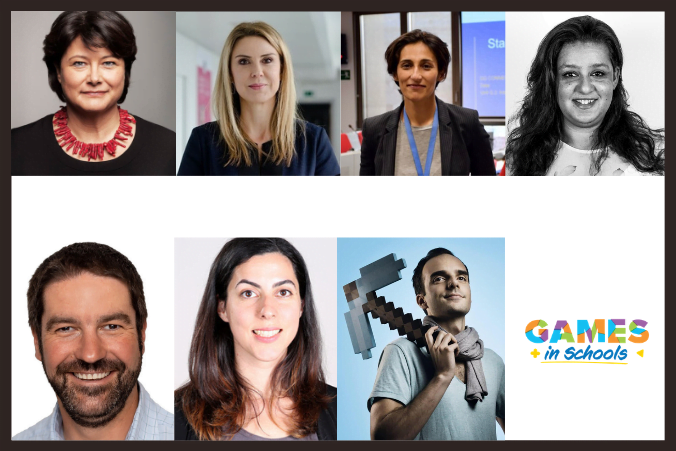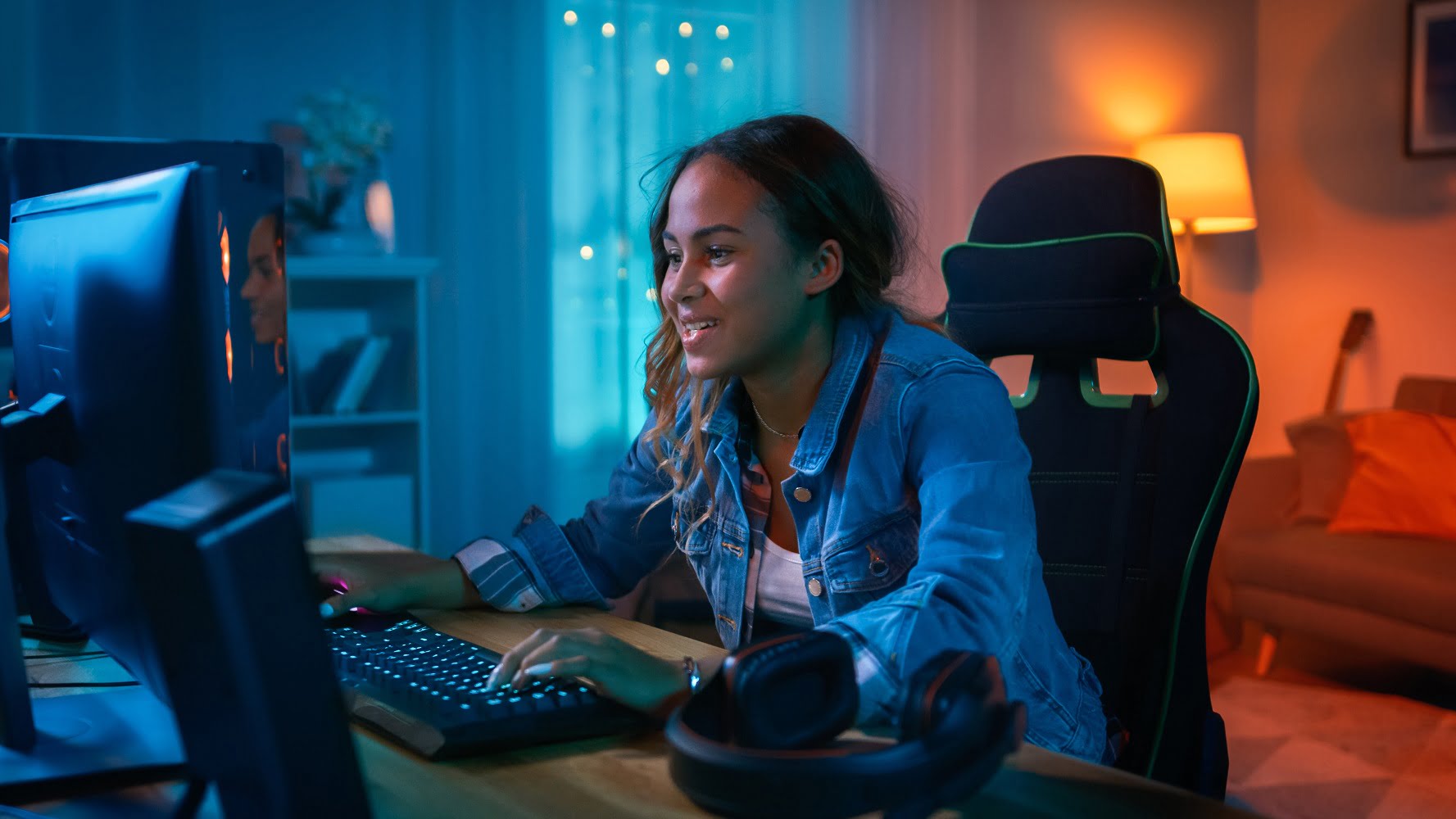Games in Schools
Led by European Schoolnet on behalf of Video Games Europe, Games in Schools is a project designed to train teachers and educators across Europe on how to use video games as pedagogical support in the classroom.
Following the success of the Games in Schools project in the previous years, Video Games Europe and European Schoolnet continues our collaboration in 2023 to examine the opportunities but also challenges offered by integrating games into our teaching and learning..
The project is based on the results and findings of an earlier project on games in schools, summarised in the Games in Schools report published in 2009.
European Study: How are digital games used in schools?
Between April 2008 and March 2009, more than 500 teachers, decision-makers and experts in 8 European countries were surveyed to understand two main questions: What can digital games bring to classroom teaching? What kind of cooperation can be envisaged in this precise context between education systems and the games industry? The survey of teachers reveals that – regardless of their gender, age, number of years in the profession, familiarity with games, age of their pupils, or the subject they teach – teachers do indeed use digital games in the classroom. Read more.
Games in Schools Massive Open Online Course (MOOC)
The Games in Schools project started with a 6-week long Massive Online Open Course (MOOC) with the following modules:
- Module 1: Why use computer games?
- Module 2: Learning games
- Module 3: Using games for thematic or interdisciplinary learning
- Module 4: Designing and learning from games
- Module 5: Why is it important to teach about games?
The course has been redesigned and all content has been updated from the 2019 edition. The 2023 edition includes a particular focus on topics such as games and inclusive learning and social and emotional learning.
At the end of the course, teachers were asked to come up with tailored lesson plans with game-based learning elements. An Editorial Board of Teachers peer-reviewed the lesson plans and included the best ones in the teacher’s handbook on the use of video games in schools. The course remains free and available for use here.
What teachers had to say
More than 1,900 teachers from 77 countries registered to take part in the 2023 edition of the Massive Online Open Courses.
99% of the participants rated the overall value of the course as ‘Good’ or ‘Very Good’ and 91% of the participants agreed that they will use the ideas and examples presented in the MOOC in their everyday work.
Angela Metallinou, Greece
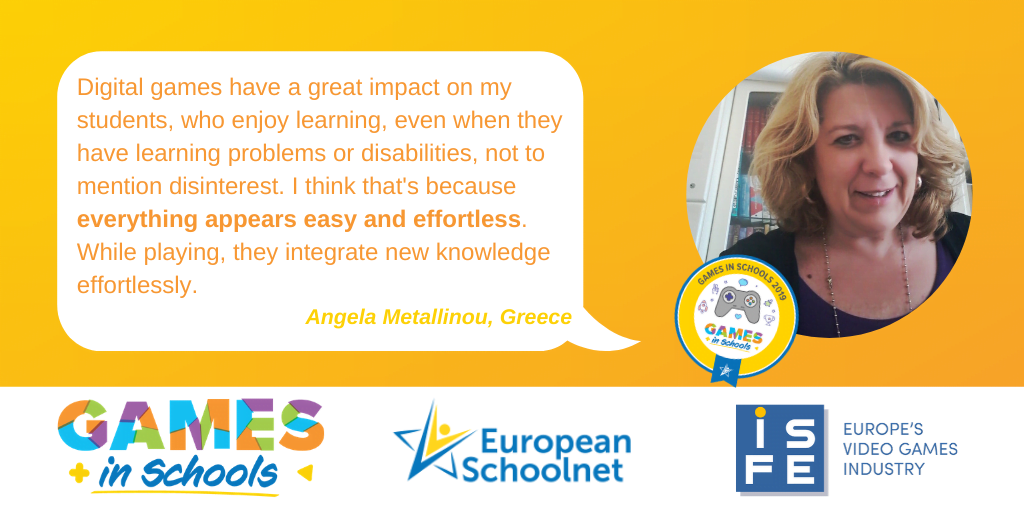
Samia Mguirhi, Tunisia
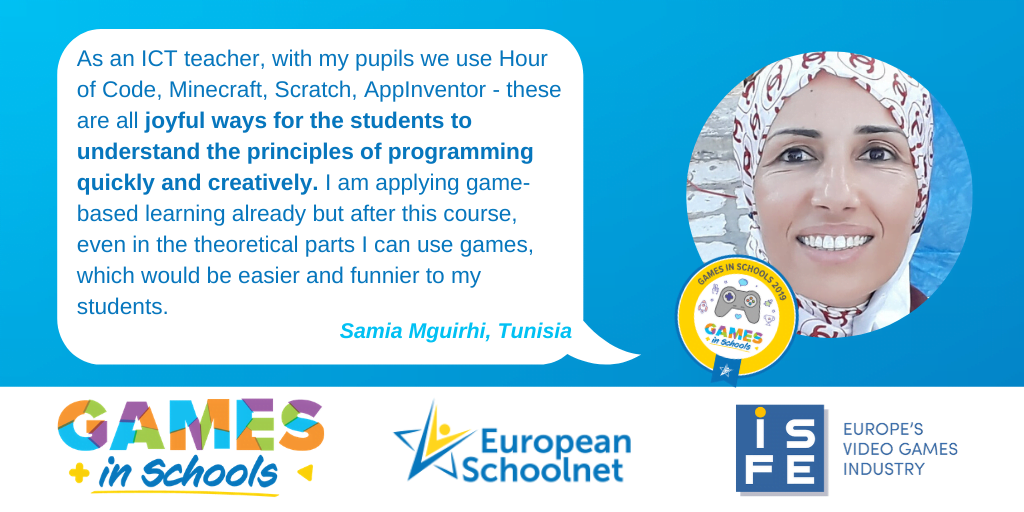
Nida Demir, Turkey
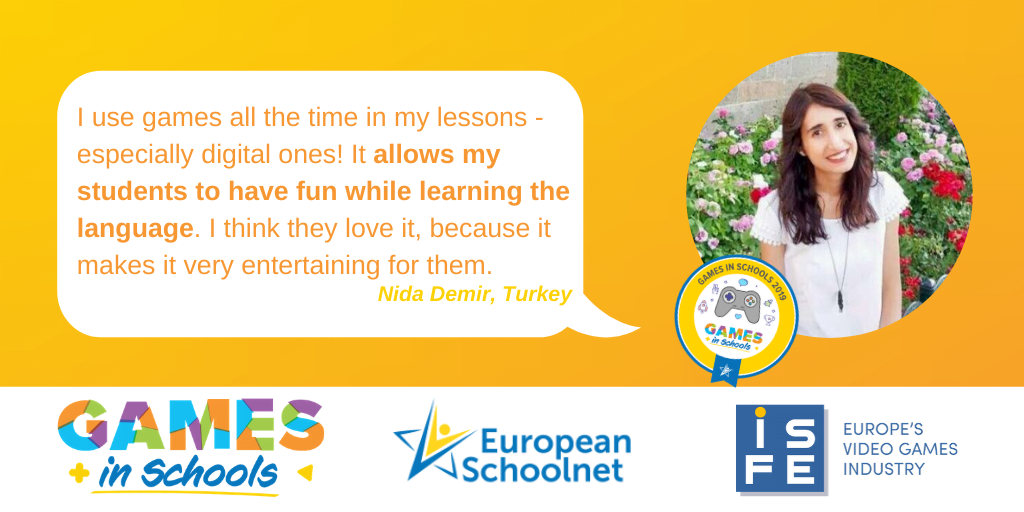
Handbook for Teachers
This handbook (updated in September 2023) is intended for teachers interested in using video games in their classrooms. It is a practical guide containing theoretical and practical information as well as references to useful resources such as lesson plans, articles, websites, and books.
The handbook supports teachers to make informed decisions. After reading the handbook, teachers should be able to choose and use video games in the classroom and reaping all the benefits digital games provide.
Other education projects
1. Past iterations of Games in Schools
 In its goal to encourage the use of video games for pedagogical purposes, Video Games Europe entrusted European Schoolnet to carry out a study to find out more about how games are effectively and meaningfully used in school education. The study, conducted from Spring 2008 to Spring 2009, draws a picture of the penetration of games in schools across 8 European countries: Austria, Denmark, France, Italy, Lithuania, the Netherlands, Spain (Catalonia) and the United Kingdom. Read or download the report.
In its goal to encourage the use of video games for pedagogical purposes, Video Games Europe entrusted European Schoolnet to carry out a study to find out more about how games are effectively and meaningfully used in school education. The study, conducted from Spring 2008 to Spring 2009, draws a picture of the penetration of games in schools across 8 European countries: Austria, Denmark, France, Italy, Lithuania, the Netherlands, Spain (Catalonia) and the United Kingdom. Read or download the report.
Following the study, a six-weeks long MOOC for teachers on how to use games in schools was elaborated. Delivered via the European Schoolnet Academy platform, the course content was coordinated by European Schoolnet with the support of Ollie Bray, an innovative educator and headteacher from Scotland. With an 80% engagement rate and a 39% retention rate, the MOOC provided hugely positive results thanks to hundreds of teachers providing additional data on how games can be used in classrooms. The evaluation report provides important indications on the challenges that teachers face when using games in the class room: Technology and logistical issues were the most common challenges identified by the teachers, spanning from lack of internet access and of devices, to lack rules for the use of students’ own devices and lack of budget.
The Handbook for teachers, written by Dr Patrick Felicia, researcher at the Waterford Institute of Technology in Ireland, is based on the outcome of the MOOC and outlines the necessary information to understand the educational benefits of digital games and to learn how to use them as educational and motivational resources. It allows teachers to make informed decisions on the choice and use of digital games in the classroom. It is available for download here.
2. UK Digital School House

3. The UN agency UNESCO MGIEP has launched an initiative on Games in Learning
- Game-based learning provides a promising new pedagogy, which allows learners to proceed at their own pace. supports research in gaming as it places the learner at the centre of learning by providing an interactive, immersive, multimodal environment. Link http://mgiep.unesco.org/games-for-learning

Additional Resources
Learning by Playing event
On the eve of the publication of the EU’s updated Digital Education Action Plan, Video Games Europe and European Schoolnet hosted the virtual Games in Schools event. “Learning by Playing” brought together EU policymakers, educational experts, and the video games industry to discuss the challenges and opportunities presented by the use of video games as pedagogical support in the classroom.
Playing video games indicates a 3X greater interest in STEM careers
A University of Surrey research by Dr Anesa Hosein states that, girls (13-14 years old) who played over nine hours of video games a week were 3.3 times more likely to study pSTEM than those who do not play video games. This was the case even after accounting for their socio-economic background, their ethnicity, past performance and how good at their chosen subject they felt they were.
How video games help teachers teach.
Felix Gyllenstig Serrao, a game-based learning expert from Sweden, discusses how video games help him teach and his request to policymakers to support such teachers.
European Study: How are digital games used in schools?
Digital Schoolhouse together with Nintendo UK, uses play-based learning to engage pupils and teachers with Computing.


